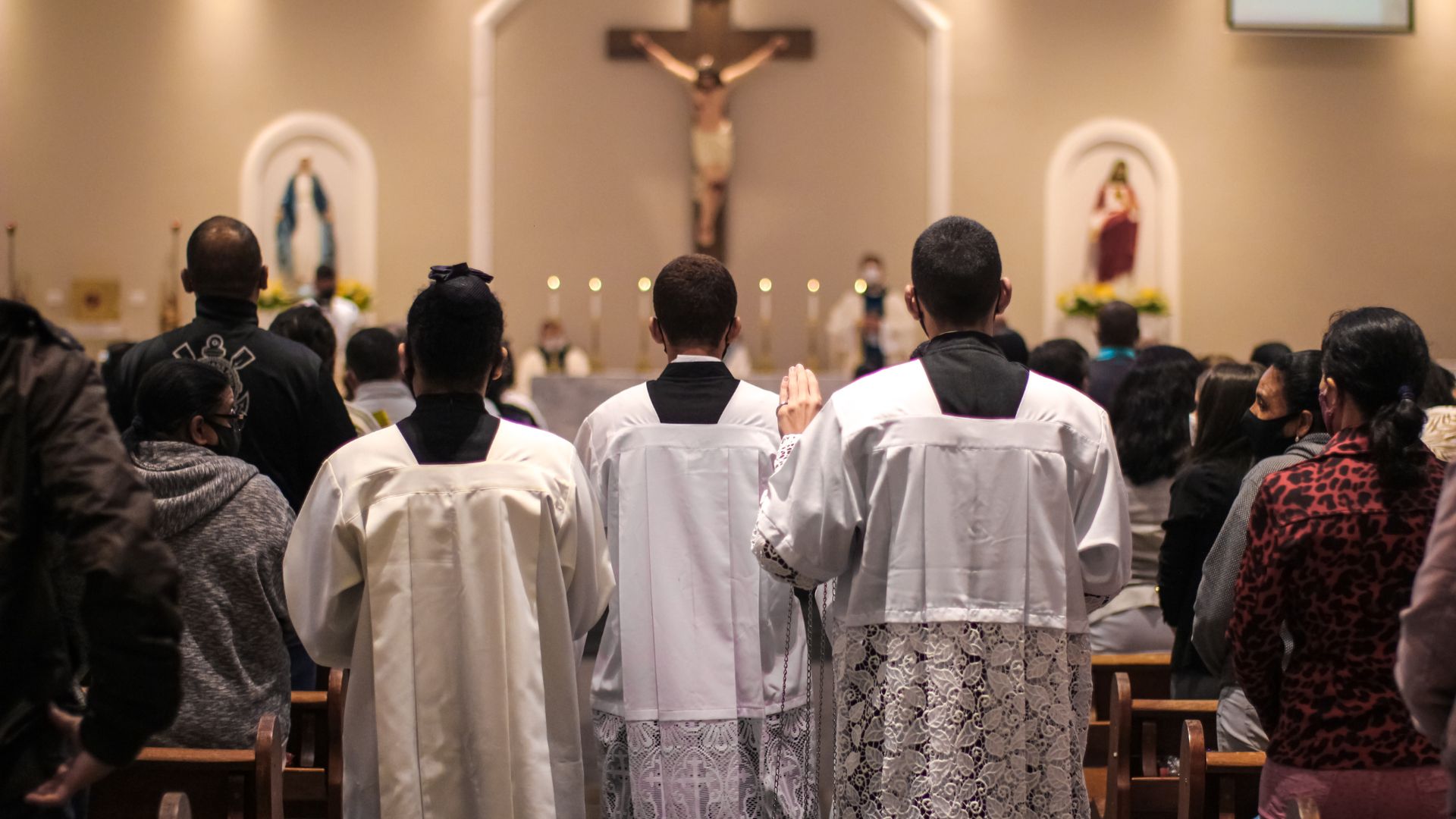Fasting, a practice deeply rooted in biblical tradition, has been an integral aspect of spiritual discipline for millennia.
In this comprehensive exploration, we delve into the profound significance of fasting in the Bible. As we journey through the sacred pages, we’ll uncover the multifaceted dimensions of fasting, its role in connecting with God, and its transformative power.
Fasting in the Bible
Before we embark on our biblical journey into fasting, let’s establish a foundational understanding of this sacred practice.
Fasting is a deliberate abstention from food or specific nourishment for a set period. In the Bible, fasting is intertwined with prayer and is regarded as a powerful spiritual discipline.
It is a voluntary act of self-denial aimed at drawing closer to God, seeking His guidance, and expressing repentance.
To grasp the depth of fasting, we must explore its origins and its relevance in the modern Christian context.
Fasting in the Old Testament
Our exploration of fasting starts with the Old Testament, delving into its origins within the Hebrew faith and its significance in the lives of the ancients.
1. Fasting in Times of Crisis
In the historical and prophetic books of the Old Testament, fasting is frequently portrayed as the go-to recourse during periods of imminent danger or great uncertainty.
This collective act of abstaining from food was more than a mere ritual; it was a profound display of humility and dependence on God’s mercy. The narrative of King Jehoshaphat in 2 Chronicles 20:3 vividly illustrates this practice.
Faced with a daunting coalition of armies, Jehoshaphat calls for a nationwide fast, urging every inhabitant of Judah to seek the Lord’s guidance. The fast was an act of collective vulnerability, a declaration that without divine intervention, they stood defenseless.
2. Fasting as a Sign of Repentance
Fasting as a gesture of contrition permeates the Old Testament, serving as a tangible expression of a penitent heart. In times of spiritual reckoning, fasting was the somber tune to which the Israelites harmonized their repentant cries.
The book of Jonah presents a compelling case with the Ninevites, who, upon hearing Jonah’s warning, embraced fasting alongside donning sackcloth to symbolize their repentance (Jonah 3:5-10).
This was not a mere outward display but a public admission of their sins and a plea for mercy. Their fast, remarkably, extended beyond the humans to include animals, signifying the depth and totality of their repentance.
3. Fasting as a Spiritual Discipline
Beyond the reactive use in crises and repentance, fasting in the Old Testament is also depicted as a proactive spiritual discipline.
It served as a means of refining one’s spiritual acuity and fortifying the soul for divine encounters.
The book of Daniel provides a clear example of this aspect of fasting. Daniel, amid the opulence and temptation of the Babylonian court, chooses to embark on a period of fasting (Daniel 10:2-3).
This fast was not prompted by an external crisis but was an inward decision to maintain spiritual clarity and seek wisdom from God.
Through fasting, the prophets, kings, and common folk of Israel found a conduit to transcend their physical needs and enter into a deeper communion with the Divine.
It was an exercise of the will, a surrender of one’s bodily desires to underscore a greater spiritual hunger.
Fasting in the New Testament
The narrative of fasting transitions into the New Testament with renewed emphasis and meaning, reflecting the new covenant through Christ.
1. Fasting in Preparation for Ministry
The Gospel of Matthew narrates the account of Jesus fasting for forty days and nights in the wilderness (Matthew 4:2).
This pivotal moment precedes His public ministry, indicating a period of intense spiritual preparation and communion with the Father.
Jesus’ fast was not a public display but a private fortification, setting a precedent for the early Christian tradition of fasting before undertaking spiritual endeavors.
2. Fasting as a Sign of Mourning and Seeking
Fasting within the early Christian church was practiced not just as a ritual, but as a heartfelt response to grief and a desire for divine direction.
In Acts, the fledgling church fasts together at pivotal moments—signifying their collective dependency on God for wisdom and guidance.
The appointment of Barnabas and Saul as missionaries (Acts 13:2-3) is accompanied by fasting, reflecting the gravity and solemnity of their mission. This communal fasting was a tangible expression of their unity in seeking God’s will for their community.
3. The Spiritual Rewards of Fasting
In His Sermon on the Mount, Jesus addresses the issue of fasting as an inward act rather than an outward show (Matthew 6:16-18).
He discourages fasting as a means to gain public approval, instead advocating for a discreet approach that honors the private nature of one’s devotion.
This teaching redirects the focus from the physical aspects of fasting to its spiritual rewards, promising that those who fast with a pure heart, unseen by others but in full view of the Father, will receive His blessings.
The New Testament reframes fasting not as a meritorious work but as a profound spiritual discipline that enhances one’s intimacy with God.
It becomes clear that fasting, in the context of Jesus’ life and teachings, is not about the absence of food but the presence of faith.
It’s a practice that invites believers into a deeper relationship with God, characterized by sincerity, humility, and a yearning for spiritual sustenance that surpasses the physical.
Spiritual Significance and Lessons for Today
Fasting, a practice deeply rooted in biblical tradition, carries profound spiritual significance and offers valuable lessons for contemporary believers seeking a more intimate relationship with God.
Spiritual Significance of Fasting
A Channel for Humility and Dependence on God
Fasting is fundamentally an act of humility, a physical confession of one’s need and dependence on God. It is a surrender, symbolizing that man does not live on bread alone but on every word that comes from the mouth of God (Deuteronomy 8:3).
A Means to Spiritual Clarity and Focus
By setting aside the distractions of daily sustenance, fasting brings spiritual matters into sharper focus. It encourages a reflective and meditative state where the noise of the physical world is quieted, allowing spiritual insights to resonate more clearly.
A Catalyst for Transformation and Renewal
Fasting is often a prelude to spiritual renewal and personal transformation. It’s a time of cleansing and realignment with God’s will, offering an opportunity for repentance and a reset of spiritual priorities.
Lessons for Today
The Pursuit of Authenticity in Devotion
In a world brimming with superficiality, fasting teaches the modern believer the value of authenticity. As Jesus taught, fasting is to be a private discipline, not a public spectacle (Matthew 6:17-18), reminding us that genuine faith is not for show but for deepening our walk with God.
The Integration of Spiritual Discipline into Everyday Life
Fasting demonstrates how spiritual disciplines can be woven into the fabric of daily life. It need not be reserved for special occasions but can be a regular practice that continually guides believers to spiritual introspection and growth.
The Call to Action and Social Justice
Fasting in the Bible often coincides with action, such as providing for the needy (Isaiah 58:6-7). It’s a lesson that spiritual discipline should be accompanied by tangible acts of kindness and justice, making faith active in love.
The Power of Communal Unity
Corporate fasting in the Bible shows the power of collective spiritual effort. Today, this underscores the importance of community and shared experience in our spiritual lives, reminding us that together, we can seek and discern God’s will more powerfully.
In conclusion, fasting is as relevant now as it was in biblical times. It remains a profound spiritual exercise that can significantly deepen a believer’s faith, draw them closer to God, and catalyze change both within and around them.
The timeless lessons gleaned from fasting are not just about abstaining from food; they’re about feasting on the divine and nourishing the soul with the bread of heaven.
Types and Variations of Fasting
Fasting, a practice deeply rooted in biblical tradition, is not a one-size-fits-all discipline. It manifests in diverse forms, each adapted to the circumstances and spiritual needs of the believer or community.
1. Absolute Fast
The absolute fast is the most intense form of fasting, characterized by a complete cessation of both food and water intake. It is typically undertaken in times of dire emergency or earnest supplication.
The book of Esther provides a poignant example with Queen Esther’s declaration of a three-day absolute fast before she approached the king with a request that could potentially lead to her death (Esther 4:16). This kind of fast is a profound demonstration of total reliance on God’s mercy.
2. Partial Fast
A partial fast is a more moderated approach where one restricts certain types of food or eats at limited times. The book of Daniel describes a 21-day period during which Daniel ate no choice foods and drank no wine (Daniel 10:3). This fast was a form of self-discipline, enabling Daniel to mourn and seek divine insight without completely abstaining from sustenance.
3. Regular Fasting
Regular fasting is a disciplined routine that involves forgoing food for spiritual reasons on a regular basis. Luke’s Gospel mentions Anna, a prophetess, who worshiped night and day, fasting and praying (Luke 2:37). Her dedication exemplifies a lifestyle of devotion, wherein fasting plays a crucial role in maintaining spiritual vigilance and communion with God.
4. Corporate Fasting
Corporate fasting is a collective experience where a community or group comes together in a unified spiritual effort. It’s a practice that not only seeks divine intervention or guidance but also fosters communal solidarity and shared spiritual experience.
Acts 13:2-3 records the early church engaging in fasting together before sending off Paul and Barnabas on their missionary journey, showing the practice as a preparatory act for communal decision-making and blessing.
The Transformative Power of Fasting
Fasting stands as a beacon in the spiritual disciplines for its dual capacity to refine the body and elevate the spirit. It offers a unique convergence of physical abstention and spiritual assertion, leading to transformative experiences for those who engage in its practice.
1. Physical and Spiritual Detox
The act of fasting serves as a catalyst for detoxification, purging the body of accumulated impurities.
Simultaneously, it acts as a spiritual catharsis, purifying the heart and renewing the mind. This dual detox can result in a clearer, more focused state of being, allowing for an uncluttered path to divine communion.
As the physical cravings subside, the spiritual yearnings take precedence, creating a fertile ground for God’s presence to be felt more profoundly.
2. Increased Spiritual Sensitivity
By muting the clamor of physical appetites, fasting fine-tunes the spiritual senses. It sensitizes the heart to the whispers of the divine, often drowned out by the noise of daily indulgences.
This increased spiritual sensitivity can lead to heightened awareness of God’s workings, a keener perception of His will, and a more receptive attitude towards guidance and revelation.
3. Cultivation of Self-Discipline
Fasting is an exercise in willpower, teaching the practitioner to forgo immediate gratification for a higher purpose. This discipline, developed through fasting, transcends dietary restraint.
It fosters a robust will that can be harnessed to overcome temptations, endure hardships, and stay the course in one’s spiritual journey. As one learns to say no to the body, the spirit learns to say yes to self-control, patience, and perseverance.
These transformative effects of fasting are not confined to the boundaries of personal spirituality. They ripple outwards, influencing relationships, work ethic, and moral choices. Fasting, therefore, is not just a religious act; it is a holistic discipline that shapes character, molds spirituality, and enhances one’s overall well-being.
The transformative power of fasting is one that can be actualized in the life of any individual seeking not just a spiritual breakthrough, but also a life more aligned with purpose, discipline, and clarity.
Frequently Asked Questions
1. Is fasting necessary for Christians today?
Fasting is not mandatory for Christians, but it is a valuable spiritual discipline. It can deepen your relationship with God and enhance your spiritual journey.
2. How long should a fast last?
The duration of a fast can vary, from a single meal to several days. The key is to seek God’s guidance and set a time frame that aligns with your spiritual goals.
3. Can fasting have health benefits?
Fasting can have health benefits when done in a balanced and mindful way. However, the primary focus of fasting in the Bible is spiritual rather than physical.
Conclusion
In concluding our exploration of fasting in the Bible, we recognize that fasting is a sacred practice that transcends time and culture. It offers a pathway to God through self-denial, prayer, and seeking His guidance.
Whether in moments of crisis, repentance, or as a regular discipline, fasting has the potential to transform our spiritual lives, drawing us closer to the divine.
As we engage in this ancient discipline, may we find the spiritual enrichment and transformation that our hearts desire, aligning our souls with the purpose God has for each of us.







